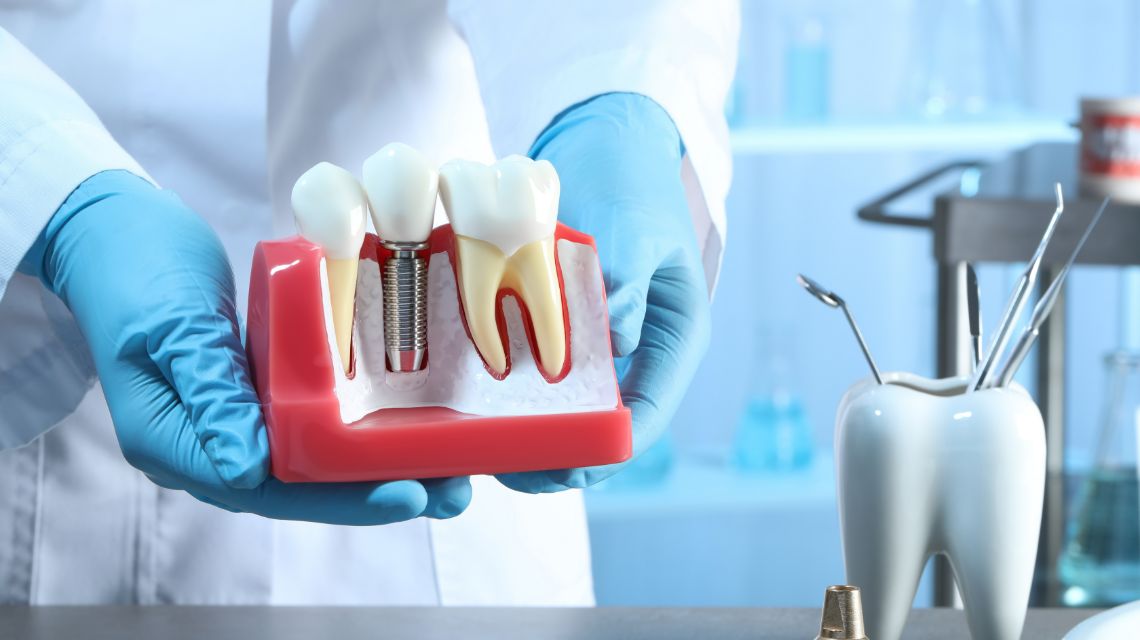
Dental implant surgery is performed to replace missing teeth with similar-looking artificial teeth. Dental implants are preferred over bridges since they require more repair and dentures, have lower success rates, and need to be removed and cleaned every night.
In this blog, we discuss everything you need to know about tooth replacement before you visit a dental clinic in Mumbai.
About tooth replacement surgery
An implantologist will recommend suitable implants as per the individual needs. There are three common types of tooth implants. These are:
- Endosteal implants – these are inserted deep into the jawbone, replacing the tooth roots, and are capable of anchoring several artificial teeth.
- Subperiosteal implants – these do not require to be inserted as deep as endosteal implants, and are placed to rest on top of the jawbone but still under the gum.
- Zygomatic implants – these are less common than the other two types of implants. These implants are used for patients who do not have enough jawbone. Zygomatic implants are placed in the patient’s cheekbone rather than the jawbone.
A dental surgeon in Mumbai may recommend an endosteal implant if possible since they have a higher success rate compared to a subperiosteal or zygomatic implant. That said, the surgeon will also recommend that patients lacking bone mass get either a sinus lift or a bone graft before the implant is placed.
Can anybody get a tooth implant?
All healthy adults who can have a tooth extraction or other oral surgery done can receive a tooth implant. Dental doctors, especially implantologists in Mumbai usually check the health of the gums and the bone mass of the jawbone before concluding whether surgery is possible.
Who can perform dental implant surgery?
Implant procedures are not done by general dentists. You will need to find a qualified implantologist or dental surgeon in Mumbai with a good track record to perform a dental implant surgery.
Why is tooth replacement surgery done?
When a tooth is missing or removed due to damage, the surrounding teeth do not have any support. The teeth begin to tilt forward, making them difficult to clean and increasing the risk of decay. Tooth implants are done to prevent further decline in dental health and tooth loss.
How is the dental implant procedure done?
Here is a breakdown of the full procedure, which usually spans 3-9 months:
- First incision: The dental surgeon will create an incision in your gums where the implant will be positioned.
- Drilling and cutting: The dental surgeon will drill directly into the incision through to the bone. Following the successful placement of the implant, the surgeon will sew shut the incision in the gums.
- Healing period and abutment placement: After the jawbone heals following the implant, an abutment, or metal connector, will be placed in the implant in a minor outpatient procedure.
- Crown placement: When your jawbone is strong enough to support new teeth, the dental surgeon will take impressions of your mouth, and create your crowns (artificial teeth). These will then be placed in your jawbone.
What are the benefits of dental implants?
Dental implants help in the following ways:
- Enhanced chewing function
- Reduced risk of cavities in adjacent teeth
- Lessened sensitivity
What are the possible complications?
The complications of dental implant surgery include:
- Infection at the surgery site
- Injuries or damage to nearby structures, like other teeth or blood capillaries
- Sinus problems due to upper jaw implants
Conclusion
Dental implants feel and look like natural teeth, and are long-lasting, convenient, and contribute to your overall oral health and confidence. They also help you with your speaking and chewing abilities.
If you think a dental implant might be right for you, request an appointment at Apollo Dental Mumbai. Call 1800 1020 288 to book an appointment or click on this link. Our experienced dentists will recommend the best treatment plan specifically tailored for you.
Dental implants are performed under local anaesthesia, which completely numbs the pain. However, the healing process could be painful.
Dental implants have an average lifespan of 15 years.
You might feel slight pain and tenderness for up to a week after a dental implant surgery.



















































